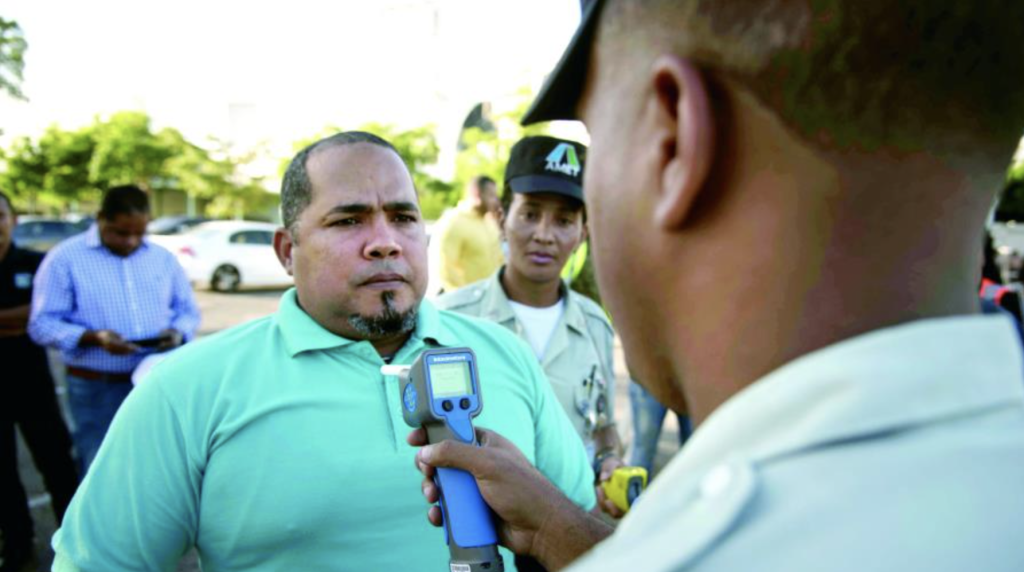
After some 17 years in the discussion, trial, and training of personnel, breathalyzers were in use in the Dominican Republic over the past weekend.
Media reports indicate that previous attempts at the implementation of the use of these instruments failed for any number of reasons: poor equipment, improperly trained personnel, and violent resistance from the general public as well as legal issues.
Way back in 2007, the Ministry of the Interior and Police had announced the acquisition of some 1,200 breathalyzers and 120,000 disposable mouthpieces as part of a program to check drunk driving. The news articles at the time also noted that the Ministry was acquiring a good supply of pepper-spray as a deterrent against major conflicts between the police and drivers. However, the program never got off the ground.
A few years later, in 2013, the agency called AMET (Metropolitan Transit Authority) attempted to install the program, but their timing was way off. It was Christmas season, and nobody was having any part of such a program.
And four years later, in 2017, with the new traffic law (Intrant Law 63-17), another announcement was issued but bureaucratic snafus brought the effort to a close. Covid-2019 put an end to yet another effort by the National Traffic Institute (Intrant).
The 2024 effort by Intrant is currently underway, and the checkpoints operate between 9pm and 4am. Some 40 agents have been trained in the use of these new breathalyzers.
Law 63-17, which covers all things related to traffic and transportation, prohibits driving under the influence on public roads. It establishes the level of alcohol at 0.5g/lt in a blood sample or 0.25 mg/lt in a breathalyzer sample as illegal or DUI. The law is even tougher on drivers of buses or other public transportation, or freight. They must test 0/0 in either one of the tests. Motorcycle drives must test at 0.2 g/l in a blood test or 0.1mg/lt on the breathalyzer.
Other media reports say the effort is futile and contradictory while the government allows major alcohol vending businesses to operate right on major roads. The Dominican Republic is probably one of the few countries where drink and drive is normal.
Read more:
El Caribe
Diario Libre
Listin Diario
DR1 News
28 October 2024

